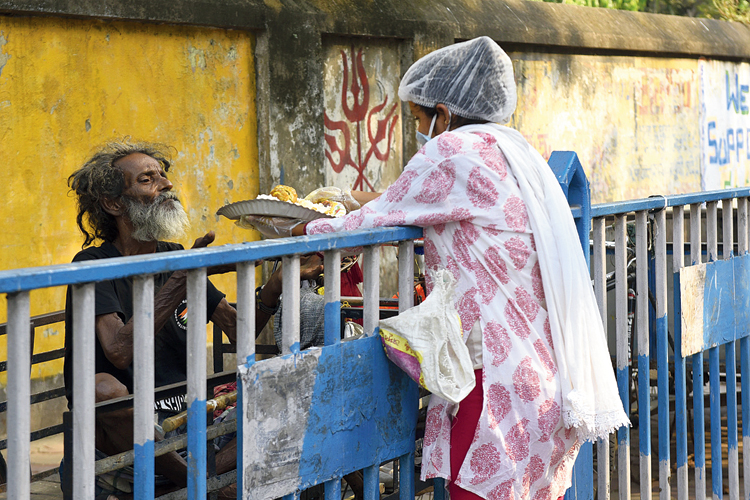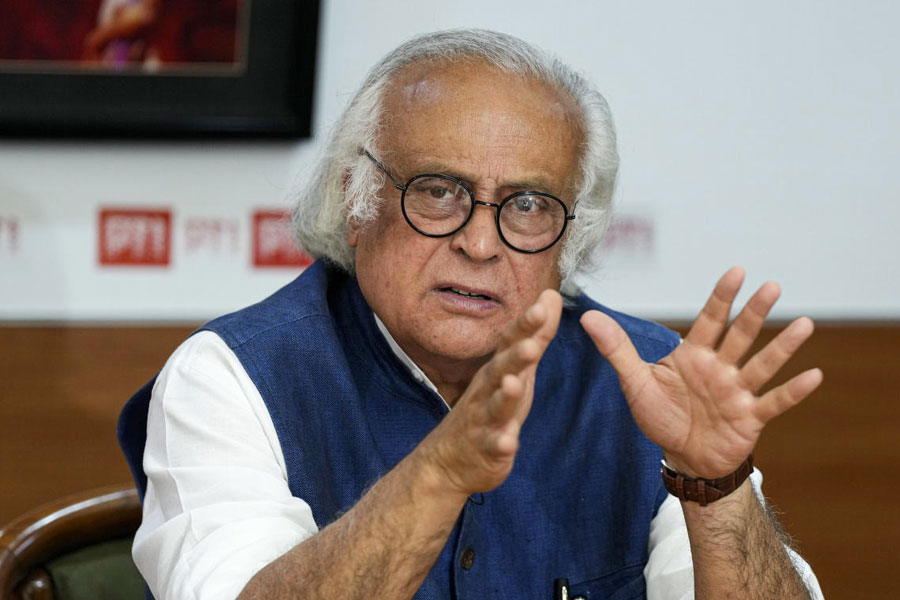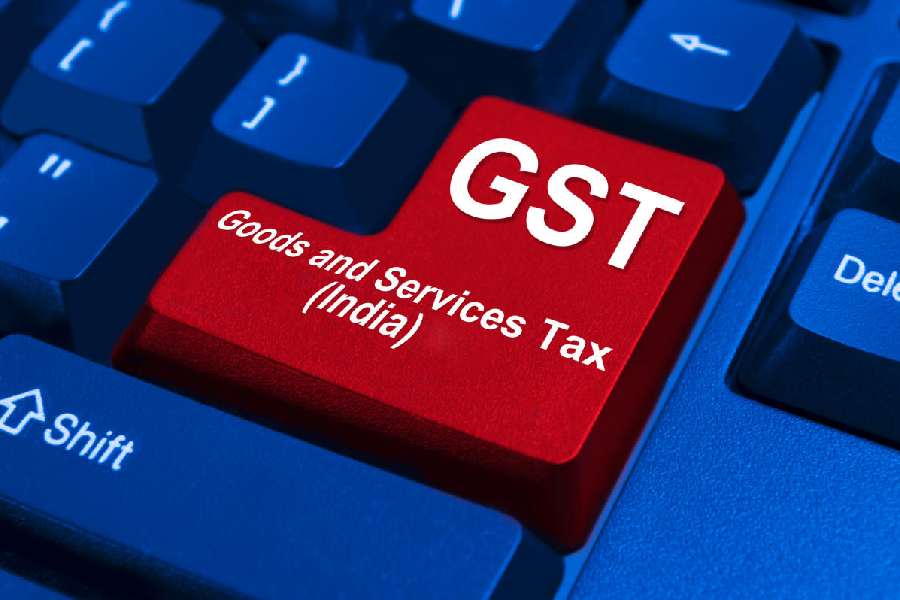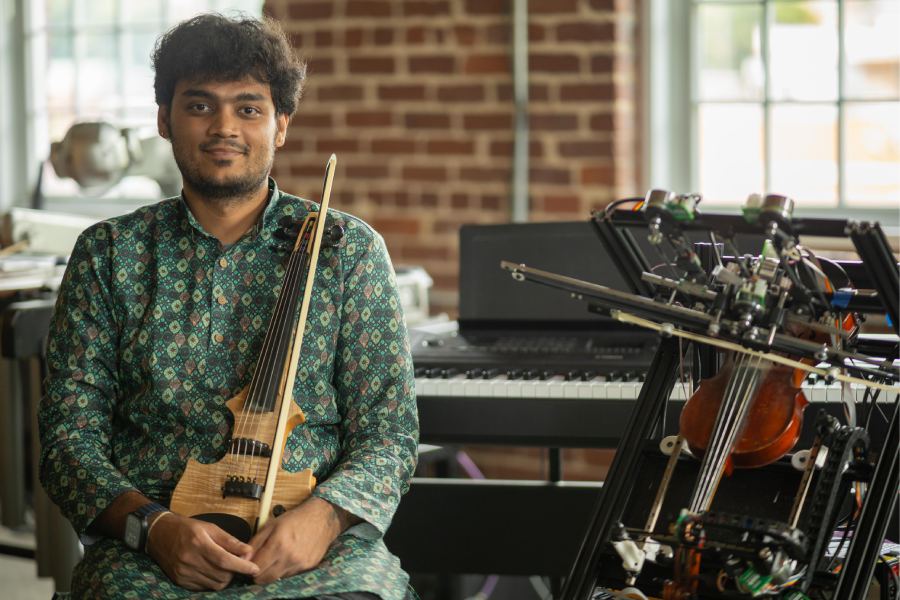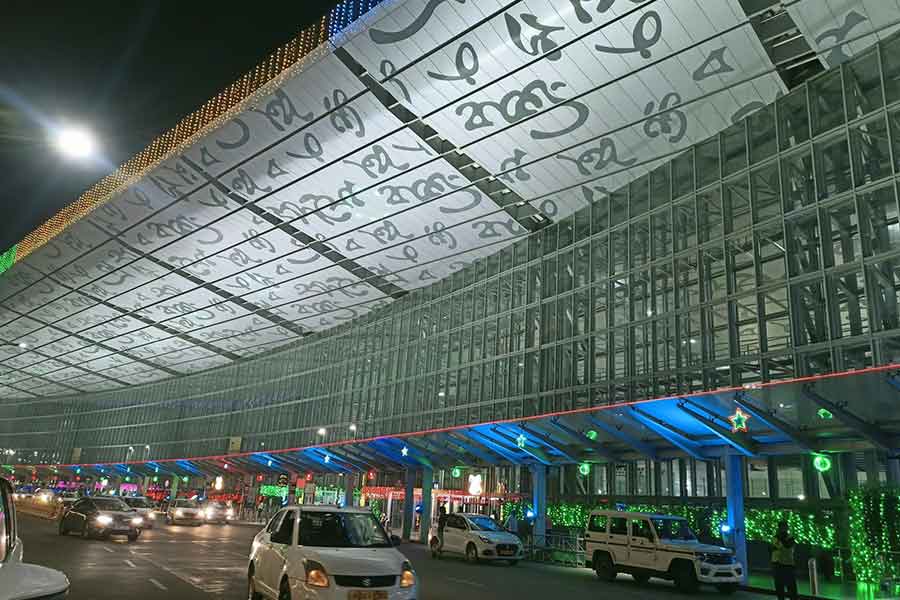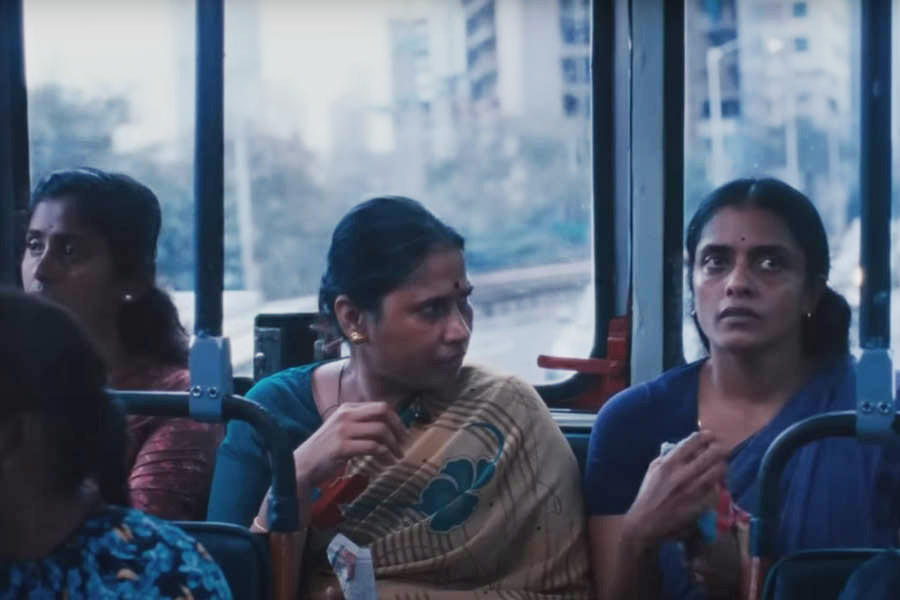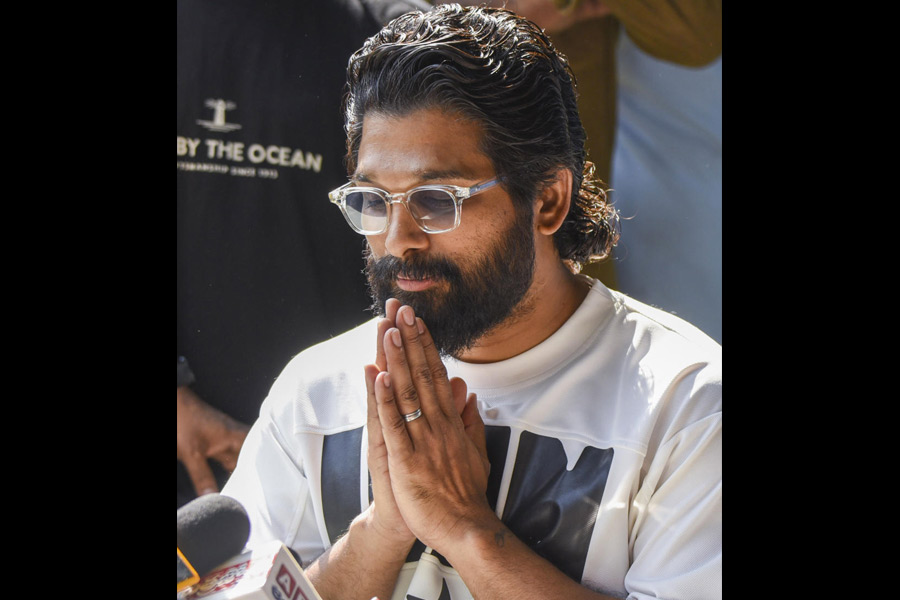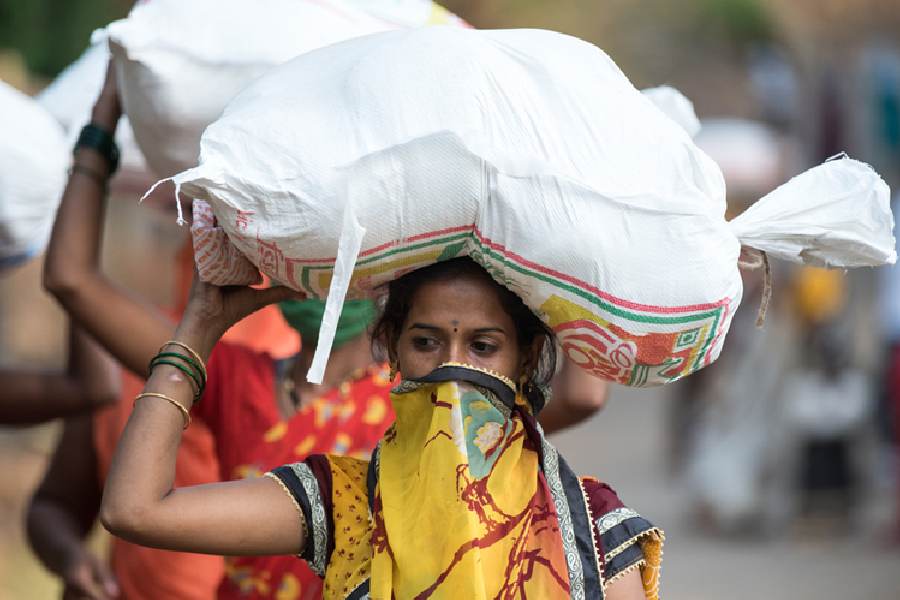Many such patients in Calcutta and on the outskirts have been finding it difficult to travel to clinics run by Calcutta Rescue, an NGO that provides free healthcare and medicine to those who cannot afford them. The CEO of the NGO, Jaydeep Chakraborty, and a few of his employees have been travelling to various locations to deliver medicines to patients.
“We have shortlisted high-priority patients who would suffer significantly if we did not reach out to them and decided to drive down to give them medicines. We have asked a few others to buy medicines from state hospitals or local pharmacies, for which we will reimburse the cost. But there are many who have to travel long distances because the medicines are very expensive or not locally available,” Chakraborty said.
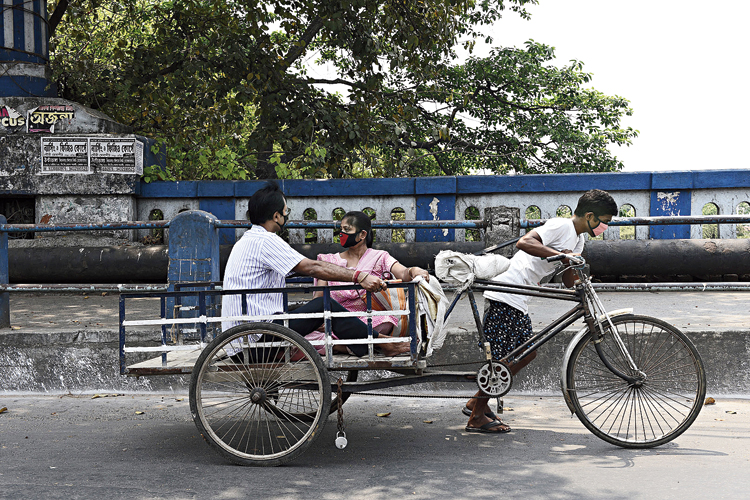
A man, accompanied by a woman, on his way to a local doctor in the Bagmari area
A group of schoolboys pooling in money to buy ration for daily wage earners, NGO workers driving down several kilometres to provide medicines to the chronically ill — the lockdown has made a good Samaritan of many.
Travel far and wide
A 21-year-old boy fighting leukaemia ran out of his monthly medicines in Joynagar, South 24-Parganas.
A woman in her 30s suffers from a chronic ailment where the immune system mistakenly attacks platelets, leading to profuse bleeding. She has to travel from her home at Gocharan in South 24-Parganas to a clinic in Tallah every month for free medicines but the lockdown left her in a lurch.
The delivery service has been tough to organise because drivers working with the NGO could not turn up because of the lockdown. Yet, Chakraborty and his team managed to reach about 200 patients.
Schoolboys turn Samaritans
Three schoolchildren with the strength and help of 37 more travelled to the slums of Salt Lake on Sunday to deliver rice and potatoes to about 200 families in Duttabad.
The list also includes some leprosy patients in the Tangra area, who had to be delivered bandages and medicines.
In some homes, the NGO has been distributing grains along with medicines because their source of income has dried up.
“Wherever possible we have tried to give two months’ medicines instead of 14 or 28 days. This means fewer visits to our clinic, less congestion and better social distancing measures,” Chakraborty said.
The boys, Interact Club members of St James' School, who decided to pool in money about 10 days ago. Forty of them from Classes IX to XII collected Rs 30,000 on Paytm.
The president of the club, Yash Chirimar, and two others went to the slums, where most residents are van rickshaw-pullers and house help.
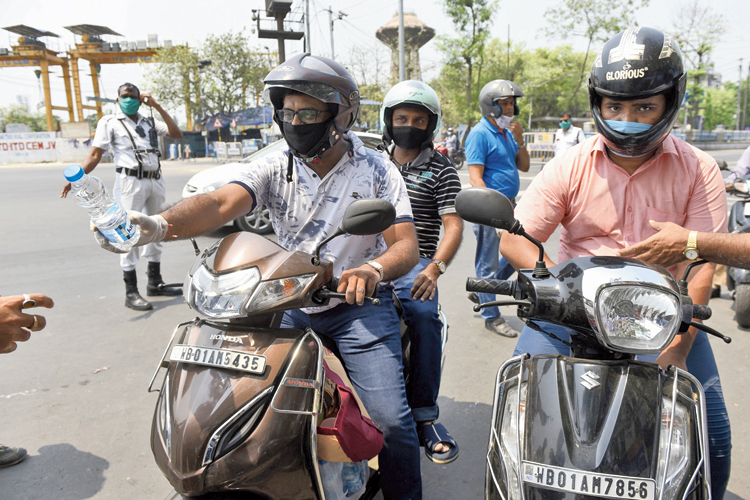
A group of people from Hazra distribute bottles of water to policemen in Esplanade. Pictures by Sanat Kr Sinha and Gautam Bose
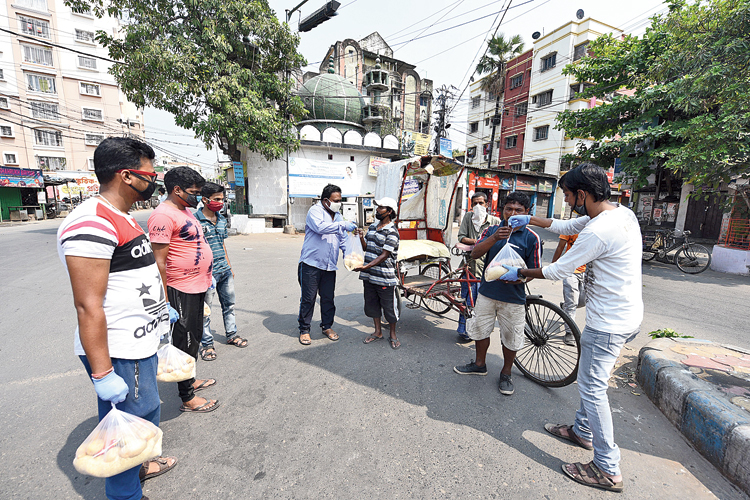
Five residents of Picnic Garden distribute essential items like rice, dal, potatoes and oil to cycle rickshaw drivers and some poor people in their area and in Ballygunge
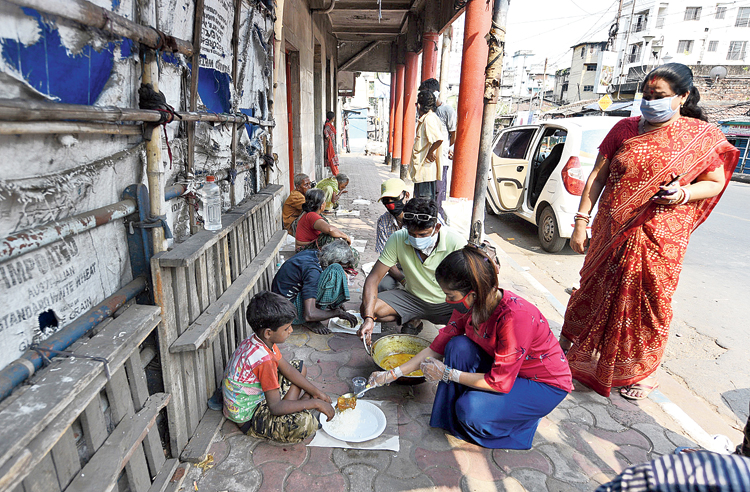
Social activists Nil Malakar and Tania Pal serve a meal of fish and rice to pavement dwellers and beggars in Tollygunge. They have been giving food to the people who live in this spot since the first day of the 21-day lockdown, they said
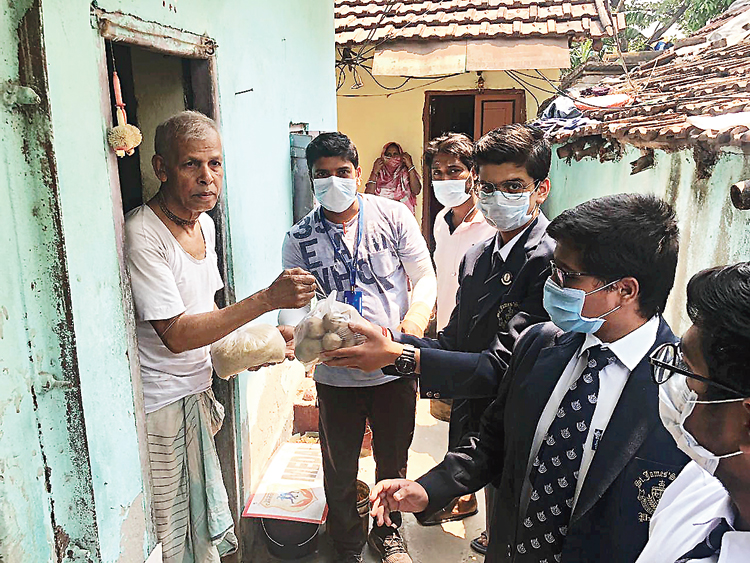
Students of St James’ School distribute essential items to residents of Duttabad in Salt Lake
“The ration would last them a few days but some of them were so happy to get it. It was just rice and potatoes but we realised how valuable it is to some,” the Class XII student said.
The Interact Club has its own fund but since that is in the school account, the boys would have found it difficult to withdraw money from there during the lockdown. “So we decided to pool in money instead,” Chirimar said.

